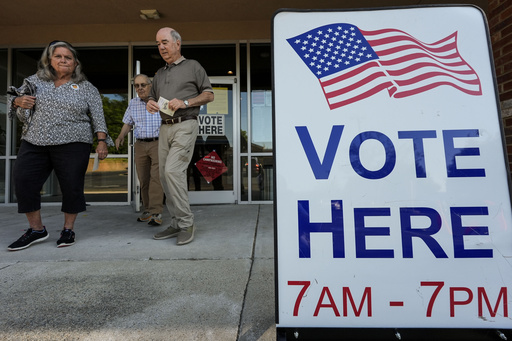
ATLANTA — On Tuesday, the Georgia Supreme Court dismissed a request by the Republican National Committee and the state’s Republican Party to swiftly restore recently adopted election regulations that had been deemed invalid by a lower court.
Last week, Judge Thomas Cox of Fulton County Superior Court determined that the State Election Board exceeded its authority when it implemented these new regulations, labeling them as “illegal, unconstitutional, and void.” The national and state Republican entities had sought an expedited review from the Georgia Supreme Court, asking for the reinstatement of these rules while their appeal was under consideration.
However, the Supreme Court declined to expedite the matter and decided against suspending Judge Cox’s order. According to the court’s ruling, the appeal will follow the standard procedure once it is officially filed, indicating that it may take several months before a decision is reached.
A Republican majority on the three-member State Election Board had enacted multiple rules in August and September, despite opposition from the board’s single Democratic member and its nonpartisan chair. These decisions received positive acknowledgment from former President Donald Trump during an Atlanta rally in August. In response to these newly adopted rules, at least six lawsuits have emerged, each challenging various aspects of them. Judges have been quick to schedule and conduct hearings on these urgent matters, given the proximity to the upcoming general election in November.
Democrats welcomed Judge Cox’s ruling, expressing concerns that the new rules could potentially be exploited by Trump supporters to obstruct or undermine the certification process or to cast doubt on the election outcomes in the event of a loss for Trump against Democratic Vice President Kamala Harris.
While some leading Republicans in Georgia, such as Secretary of State Brad Raffensperger, have raised alarms about the abrupt introduction of these election rules, the state and national Republican parties have shown their backing for the board. They argue that the rules are designed to enhance transparency and accountability within the electoral process in Georgia.
The legal ruling by Cox stemmed from a lawsuit launched by Eternal Vigilance Action, an organization spearheaded by former Republican state Representative Scot Turner. The organization contended that the State Election Board had overreached its jurisdiction by enacting the seven new rules. Along with declaring the rules void, Cox mandated that the State Election Board immediately notify all state and local election officials to disregard these regulations.
In a related matter, a prior ruling by Judge Robert McBurney of Fulton County Superior Court temporarily halted a rule that mandated three poll workers to count paper ballots manually after the polls closed. McBurney paused the implementation of this measure while he reviews its implications, suggesting that it would create disorder so close to the election.
Among the additional regulations that Judge Cox invalidated were those related to certifying election results, including a definition of certification that calls for county officials to undertake a “reasonable inquiry” before finalizing results, without specifying the criteria for such inquiries. Another rule that was annulled involves allowing county election officials to access all documentation related to the conduct of elections.
Furthermore, regulations deemed unconstitutional and illegal by Cox include provisions that:
– Require identification verification and a signature from individuals delivering absentee ballots in person.
– Mandate video surveillance of ballot drop boxes after the polls close during early voting.
– Broaden the designated areas for partisan poll watchers at counting centers.
– Stipulate daily public reporting of the early voting totals.
